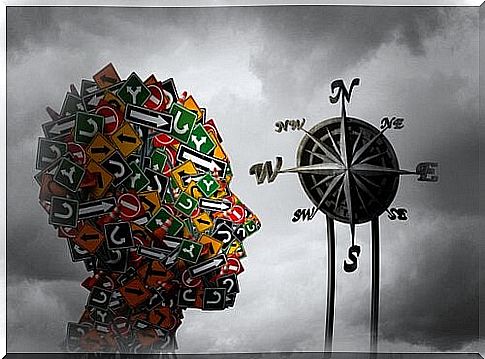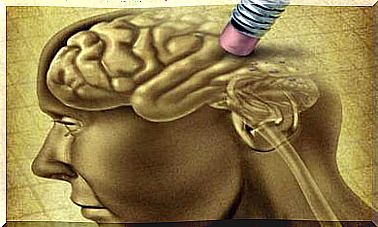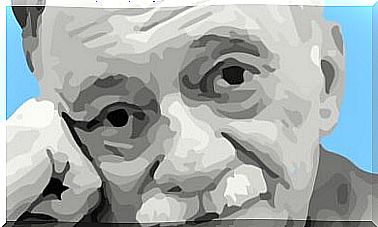Is Psychology A Science?

Those who deal with and work in this discipline often get asked if psychology is a science. This is due to a certain superficiality and confusion in relation to it. Most of the population does not know what the study of psychology is really about.
To understand if psychology is a science , first of all it is necessary to know what a science is, as this concept is also often misunderstood. Science is believed to be the undisputed bearer of truth, since it observes and describes it. But reducing it to this definition can lead to further errors. Let’s try, then, to shed some light on the subject thanks to this article.
What is meant by science?
A science is a branch of knowledge that seeks to describe, explain, anticipate and modify a certain phenomenon of reality. In the case of psychology, it is about human behaviors and cognitive processes. Science has a pragmatic goal, it tries to understand certain events to use them in its favor. For this purpose, it uses its own methodology called the scientific method.

The scientific method is a hypothetical-deductive strategy that serves to draw conclusions and build certainties on the study objective. It consists of a series of steps which we will explain below:
- Approach to the problem. It is the first part of the method. It consists in the search for a problem whose manifestation shows an unclear origin. An example of a scientific approach could be these simple questions: “Why do objects fall to the ground? How does learning happen in the human being? ”. These two questions are very generic, in science you work on a much more specific level, but they still help you understand how to look for a problem.
- Hypothesis development. Through observation, deduction and bibliographic revision, it is possible to develop a series of hypotheses, theorize how the problem presents itself. The assumptions are not true or false, but possibilities that can be refuted.
- Carrying out the experiment. Once the starting assumptions have been established, the next step is to try to validate or refute them. It is necessary to design an experiment in which the hypotheses previously set out can be tested. This experiment can be done in many ways, with probing, through direct observation, through experimental manipulation, etc.
- Data analysis. After carrying out the experiment, we proceed to the statistical analysis of the data. If this shows us that a hypothesis is wrong, it is discarded. But if you are unable to refute it, it is defined as verified. It is important to understand that a hypothesis can never be confirmed since we cannot access all the data and we always speak in terms of probability. The term “refutation” only indicates that for the moment it is not yet in a position to deny that hypothesis.
- Communication of results. It is the most important part of the scientific method, it would make no sense to discover something if it is not shared with everyone. By communicating the results, we help to expand knowledge and this will probably allow us to solve new problems to allow science to move forward. Sharing an experiment allows other researchers to replicate it and discover further ways to disprove the hypotheses.
The key to this process is to understand that science works by countering its own assumptions . It is a way to reduce error and avoid stating unshakable dogmas. Always leaving conflicting hypotheses in doubt, science is constantly testing. Thanks to this model, we can count on a dynamic method that adapts to new data that appear over time.
Another important aspect is the distinction some people make between hard sciences and soft sciences. The hard sciences are biology, physics or chemistry, which seem more objective and easily observable. But this is an erroneous conceptualization. Just as in physics it is deduced that gravity exists through observable events, in psychology the same is done by studying elements such as anxiety, emotions or learning processes. Today it is known that the classic law of gravity was wrong.
Science is not about saying what happens, but why it happens. And to do this the soft and hard sciences use the same method.
Intuitive psychology and scientific psychology
We all generate intuitive theories about what the world is like around us. This helps us stay in control and anticipate what will happen. We have an intuitive psychology that tells us how we believe others behave and why they do it. However, it would be a grave mistake to think that those theories are correct.
Intuitive psychology is based on mental shortcuts formed from previous experiences. Depending on your upbringing, experiences and personal history, you will see what is going on around you in one way or another. These judgments are totally subjective and do not follow any scientific rigor. They are part of our life, but they have nothing to do with the scientific discipline of psychology.
Scientific psychology is totally opposed to intuitive psychology, just described. When human behavior is explained, no value judgments are attributed, the scientific method is combined with experimentation to collect objective data and interpret them. As a result of the various researches, psychological constructs arise, supported by multiple empirical data.
A key aspect to understand and which leads us to affirm that psychology is a science is the difference between opinion and interpretation. When we speak of opinion, we refer to the beliefs we have because of our experience of an aspect of reality. For example, we can say that the human being is good and it is society that corrupts him, because our experiences are consistent with this point of view.
Interpretation, on the other hand, consists in analyzing, deciphering and explaining an event through scientifically obtained data. Continuing with the previous example, if the data does not show us whether the human being is good or bad, we will have to interpret it from a different perspective that integrates all the information.
Scientific psychology is not a matter of opinion, it cannot be discussed in the same terms as intuitive psychology. It is based on the interpretation of the evidence obtained, and therefore its debate must be given between the different meanings attributable to the information obtained. In other words, the only way to refute the results of scientific research, in psychology, is through the use of capable objective data. This is why psychology is a science.
Why is it often believed that psychology is not a science?
Psychology uses the same methods and has the same validity and reliability as the other sciences. But then, why are there so many doubts as to whether or not psychology is a science? Let’s immediately see three reasons that explain this mystification.
The first reason is hidden in the great confusion that exists on the concept of science. This, together with ignorance of the tools used to evaluate behavior and mental processes, leads to a categorization of psychology as subjective, and not as science.
The second reason is related to the pseudoscientific practices that derive from psychology. Unfortunately, many people who use the term “psychology” to refer to practices that are not based on the scientific method. This leads many people to mistakenly link pseudoscience to psychology, even though they actually have nothing to do. Practices such as coaching, neuro linguistic programming (NLP), or some branches of psychoanalysis are examples.

The last reason we find it in the resistance to accept the evidence of psychology. This is probably due to the fact that this science directly involves the human being. In physics, chemistry or other sciences, the results do not “disturb” people and are accepted without problems. But when we talk about the human being, the situation is different. If the results go against intuitive beliefs, this cognitive conflict is quickly attempted because it is easier to ignore the evidence presented than it is to restructure traditional beliefs. Even if they are scientifically wrong.
If you’ve ever wondered if psychology is a science, the answer is obviously “Yes!” Discrediting this discipline is a dangerous mistake that risks slowing down scientific progress. Keep in mind that we are talking about a very important fundamental discipline for understanding man from an individual and social point of view.









